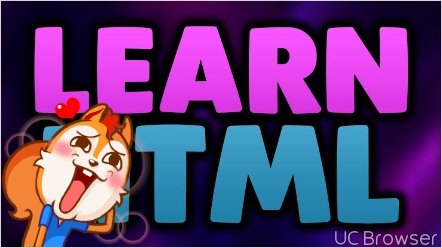Html stands for:"hypertext markup language".
hypertext: This refers to the way in which web pages are linked together.
As the name implies, html is a markup language with tags that tells a web browser how to structure it's display.

In this tutorial, the examples I shall be giving will be based on HTML 5.
The first step is to open notepad on your PC.
Secondly save it with this extension ".html". For example if the name I want to use. For the webpage is facebook, then I'll save it as "facebook.html".
Now let's roll!!!
Basic html Document
< !DOCTYPE html >
< html > < head > < title >This is the document's title< /title> < /head > < body>
< h1 >This is a heading
< p >Document content goes here< /p >
< body > < /html >
Any word or letter encased in this "<>" is called a tag. A tag with this "<>", is called an opening tag, while "</>" is a closing tag.
For example
< p > is the opening tag of a paragraph, while < /p > is the closing tag of a paragraph.
List of basic tags and their descriptions.
< !DOCTYPE html > : This tag defines the document tag and html version. This tag shows that the html program below is html 5.
< html >: This tag encloses the entire html documents. It contains the document headers, titles and other tags.
< head >: This tag represents the documents header which can contain: < title >, < link > e.t.c.
< title >:This tag is used inside a < head > tag which is used to mention the documents title.
< body >: This tag signifies the documents body. It contains other tags like: < h1 >, < p >, < div > e.t.c.
< h1 >: This tag represents the heading.
< p >: This tag represents a paragraph.
Note!!! When writing the tags don't leave. Space between the brackets and letters. I left the space because the web browser was misinterpret it as though I am designing.
If you have any questions about this first phase of html programming, ask your questions in the comment section.